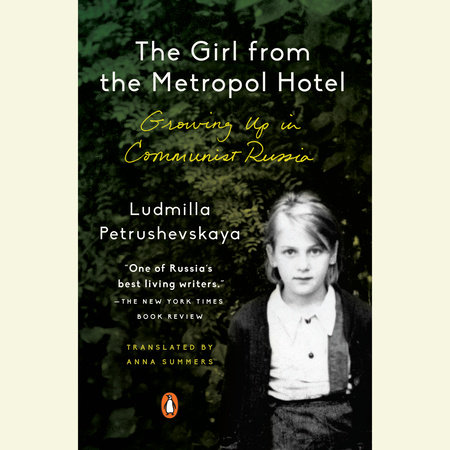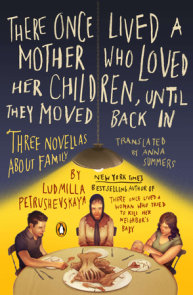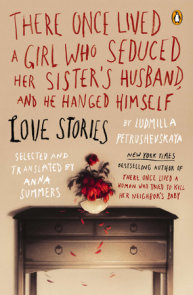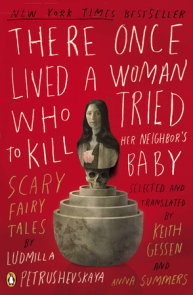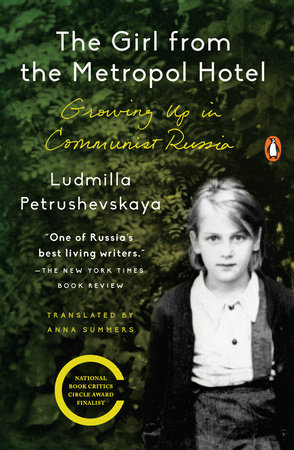

The Girl from the Metropol Hotel
By Ludmilla Petrushevskaya
Introduction by Anna Summers
Translated by Anna Summers
By Ludmilla Petrushevskaya
Introduction by Anna Summers
Translated by Anna Summers
By Ludmilla Petrushevskaya
Introduction by Anna Summers
Translated by Anna Summers
By Ludmilla Petrushevskaya
Introduction by Anna Summers
Translated by Anna Summers
By Ludmilla Petrushevskaya
Read by Kate Mulgrew
Introduction by Anna Summers
Translated by Anna Summers
By Ludmilla Petrushevskaya
Read by Kate Mulgrew
Introduction by Anna Summers
Translated by Anna Summers
Category: Arts & Entertainment Biographies & Memoirs | Literary Figure Biographies & Memoirs | European World History
Category: Arts & Entertainment Biographies & Memoirs | Literary Figure Biographies & Memoirs | European World History
Category: Arts & Entertainment Biographies & Memoirs | Literary Figure Biographies & Memoirs | European World History | Audiobooks

-
$16.00
Feb 07, 2017 | ISBN 9780143129974
-
Feb 07, 2017 | ISBN 9781101993514
-
Feb 07, 2017 | ISBN 9781524755560
203 Minutes
Buy the Audiobook Download:
YOU MAY ALSO LIKE
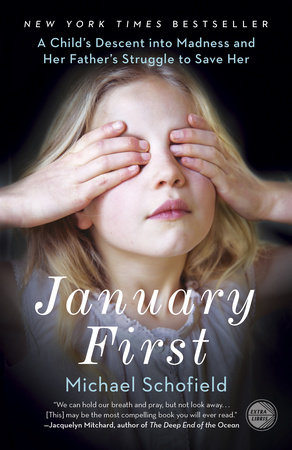
January First
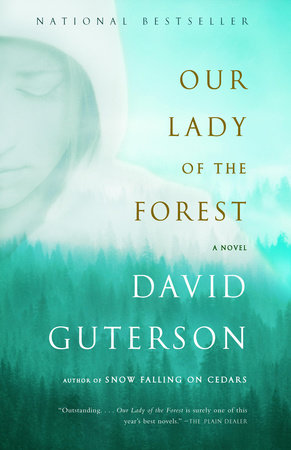
Our Lady of the Forest

London Under
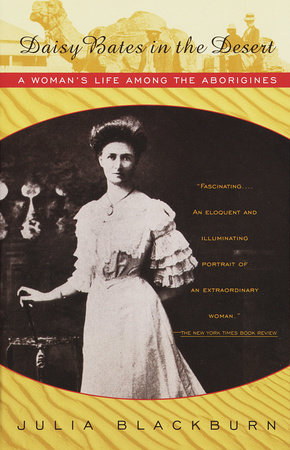
Daisy Bates in the Desert
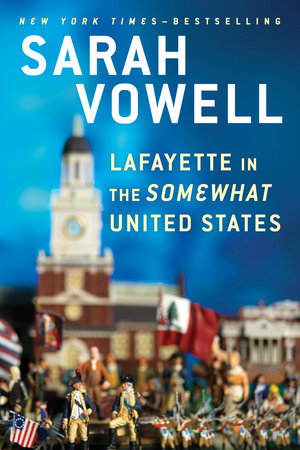
Lafayette in the Somewhat United States
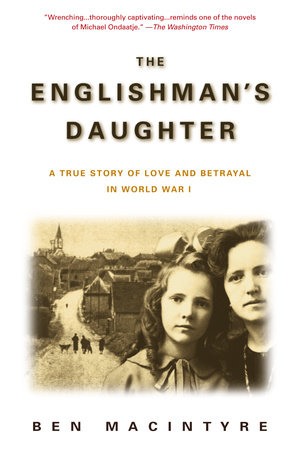
The Englishman’s Daughter
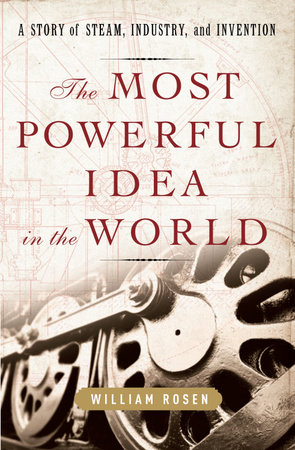
The Most Powerful Idea in the World
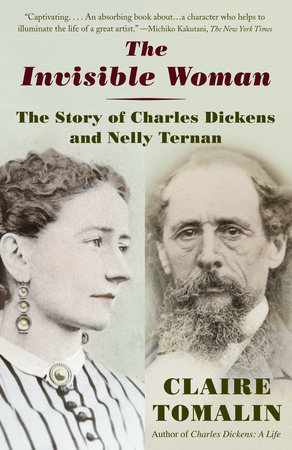
The Invisible Woman

Wintering
Praise
“Powerful . . . Like a stained-glass Chagall window, Petrushevskaya’s Soviet-era memoir creates a larger panorama out of tiny, vivid chapters, shattered fragments of different color and shape. . . . [It] brings to mind Auden’s famous words about Yeats: ‘Mad Ireland hurt him into poetry.’ This memoir shows us how Soviet life hurt Ludmilla Petrushevskaya into crystalline prose.” —The New York Times Book Review
“[An] extraordinary memoir . . . Lively, bold, iconoclastic . . . [Petrushevskaya] has succeeded Aleksandr Solzhenitsyn as the country’s greatest writer and authentic moral voice.” —Orlando Figes, The New York Review of Books
“A gritty, surprisingly disarming portrait of the grim Stalinist era.” —BBC, “Ten Books You Should Read in February”
“Devastating, unjudgmental, and curiously uplifting, the memoir is a profound testament to the power of the creative, loving human spirit to vanquish brutal circumstance. . . . The stories she tells . . . show a girl of unerodable pride and defiant character, intent on finding joy.” —The Christian Science Monitor
“Petrushevskaya is blessed with good material. . . . [Her] sunny outlook seems all the more remarkable as we learn more details of her childhood, some of which might read as straight out of the Brothers Grimm. . . . A preternaturally nimble and resourceful heroine, she keeps emerging unscathed. . . . Her memoir has the fairy-tale ending its plucky heroine deserves.” —Bookforum
“Biting but beautiful, it’s an autobiography that says much about the world both then and now.” —Refinery29
“A well-crafted glimpse into the past of one of Russia’s most intriguing writers . . . Spare, often darkly humorous . . . Many memories have a touch of the magic Petrushevskaya includes in her fiction. . . . Her perspective . . . is decidedly original.” —BookPage
“Matter-of-fact and without pity, Petrushevskaya writes of a deprived upbringing in Stalinist Russia, and the tenacity she developed along the way.” —Bustle, “Fifteen Memoirs from Modern Dictatorships That Every American Needs to Read”
“Powerful . . . Her vivid memories . . . resonate viscerally. . . . We are given a child and then young woman whose resilience is remarkable.” —PopMatters
“A terse, spirited memoir that reads like a picaresque novel . . . Lively, irreverent . . . With spunk and defiance, [Petrushevskaya] survived, and transcended, the privations of her youth.” —Kirkus Reviews
“A blend of dark humor and clipped, piercing realism . . . Petrushevskaya is the definition of incorrigible and indomitable, both on the page and in her life.” —Publishers Weekly
“I loved The Girl from the Metropol Hotel. Charming and brave with a sense of wonder and mischief, the young Ludmilla Petrushevskaya struck me as nothing less than a Russian Huck Finn.” —Martin Cruz Smith, New York Times bestselling author of Gorky Park and The Girl from Venice
Acclaim for Ludmilla Petrushevskaya
“We are likely to hear a lot more of this woman. Some October, perhaps, from the Nobel Prize committee.” —The Nation
“One of Russia’s best living writers . . . Her tales inhabit a borderline between this world and the next.” —The New York Times Book Review
“Petrushevskaya, now seventy-six and finally attracting the readership she deserves, [has] a ringleader’s calm mastery of the absurd.” —The New Yorker
“Petrushevskaya writes instant classics.” —The Daily Beast
“Petrushevskaya is the Tolstoy of the communal kitchen. . . . She is not, like Tolstoy, writing of war, or, like Dostoevsky, writing of criminals on the street, or, like poet Anna Akhmatova or novelist Aleksandr Solzhenitsyn, noting the extreme suffering of those sent to the camps. Rather, she is bearing witness to the fight to survive the everyday. . . . [She is] dazzlingly talented and deeply empathetic.” —Slate
“This celebrated Russian author is so disquieting that long after Solzhenitsyn had been published in the Soviet Union, her fiction was banned—even though nothing about it screams ‘political’ or ‘dissident’ or anything else. It just screams.” —Elle
“Her suspenseful writing calls to mind the creepiness of Poe and the psychological acuity (and sly irony) of Chekhov.” —More
“Petrushevskaya’s fiction [offers] a glimpse of what it means to be a human being, living sometimes in bitter misery, sometimes in unexpected grace.” —Jenny Offill, The New York Times Book Review
“The fact that Ludmilla Petrushevskaya is Russia’s premier writer of fiction today proves that the literary tradition that produced Dostoyevsky, Gogol, and Babel is alive and well.” —Taylor Antrim, The Daily Beast
“What distinguishes the author is her compression of language, her use of detail and her powerful visual sense.” —Time Out New York
“A master of the Russian short story.” —Olga Grushin, author of The Dream Life of Sukhanov
“There is no other writer who can blend the absurd and the real in such a scary, amazing and wonderful way.” —Lara Vapnyar, author of There Are Jews in My House
“One of the greatest writers in Russia today and a vital force in contemporary world literature.” —Ken Kalfus, author of A Disorder Peculiar to the Country
“A master of the short story form, a kindred spirit to writers like Angela Carter and Yumiko Kurahashi.” —Kelly Link, author of Get in Trouble, Magic for Beginners, and Stranger Things Happen
“In her best work Petrushevskaya steers a sure course between neutrally recording the degraded life of the Soviet-era urban underclass and ratcheting up the squalor of that life for the mere pleasure of it. She does so by the steadiness of her moral compass and the gaiety of her prose.” —J. M. Coetzee, winner of the Nobel Prize in Literature
21 Books You’ve Been Meaning to Read
Just for joining you’ll get personalized recommendations on your dashboard daily and features only for members.
Find Out More Join Now Sign In







